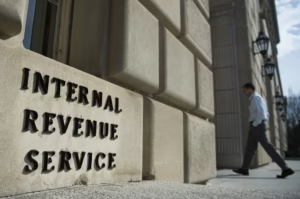Investors could have a spectacular end to September.
Long-term stock prices could benefit from this week’s positive economic news. However, any economic news could be helpful.
In September, U.S. stocks have done well, even though it’s usually a difficult month for markets. However, it now appears that a possible government shutdown will occur in the middle of the week, just as investors are wrapping up the month and quarter. Crucially, a shutdown might prevent the release of the crucial jobs report in September.
“This could come at a really unfortunate time because we are supposed to get the jobs report on Friday,” Charles Schwab senior investment analyst Kevin Gordon cautioned. “If we don’t get access to that data, it’s going to be a problem.”
Labor-market data has recently come under intense scrutiny, particularly after the commissioner of the Bureau of Labor Statistics was abruptly ousted by President Donald Trump in August for a subpar monthly report that also contained downward revisions to data for several previous months.
Even while all of it indicates that the U.S. economy has survived a weak job market, investors may become anxious every time a new monthly labor-market data is released. Additionally, this specific jobs report was originally predicted to be this week’s biggest story.
“At the moment, we view the government shutdown on October 1 as a high-probability event, likely lasting long enough to delay release of the September jobs [report] and, likely, CPI releases, due out October 3 and 15, respectively,” said Gary Schlossberg, global strategist at Wells Fargo Investment Institute, in an email.
Schlossberg further believes that any government shutdown this time could result in more widespread disruptions to data releases than “the partial shutdown in December 2018-January 2019, because more agencies will be affected by the lack of appropriations bills passed by Congress this time.”
Funding for federal government activities only lasts until September 30 in the absence of a stopgap budget. Many services and operations would thereafter be suspended.
When asked if a shutdown could cause Friday’s jobs numbers to be delayed, the White House remained silent. Some, but not all, of the regular economic reports have been delayed as a result of shutdowns in the last ten or so years.
When the September jobs report is released, it is anticipated to show weaker government payrolls from employees who accepted buyouts earlier this year, according to Gordon of Schwab.
Is any news good?
Concerns over stock market valuations, AI spending, and Federal Reserve Chair Jerome Powell’s remarks characterizing stocks as “fairly highly valued” have been major issues in the last few days of September.
While purchasing languishing sectors, some investors have been pulling chips off the table when it comes to high-flying megacap technology stocks that are fueling AI expenditure.
Gordon remarked, “They are taking gains and deploying them elsewhere,” referring to energy stocks as the week’s winner but the year’s underperformer. “That theme’s very much alive.”
Despite recording a 1% weekly loss on Friday, the Roundhill Magnificent Seven ETF MAGS, a stand-in for megacap tech firms, was up 18.4% on the year thus far, according to FactSet data. The energy sector of the S&P 500, XX:SP500.10, increased 4.7% for the week but a more moderate 7.5% for the year.
The weekly decline in stocks following a recent “really eye-watering run” and increased investor scrutiny of AI spending, according to Garrett Melson, a portfolio strategist at Natixis Investment Managers Solutions, did not surprise him.
However, Melson believes that if opportunities present themselves, investors are prepared to buy the drop, which could only result in brief stock market declines. However, he has been keeping a closer eye on the housing market’s deterioration and believes that a lot will depend on the publication of future economic statistics because the outlook for the economy appears “more cautious, but not terrible.”
During the lengthy government shutdowns in 2013 and at the end of 2018, Schlossberg of the Wells Fargo Investment Institute contended that equities and bonds were “largely reversed even before the government reopened as attention shifted to other market movers.”
“We view the situation as likely to be little different this time, despite a more deeply divided Congress.”
Although the S&P 500 index (SPX) lost 0.3% for the week, the Dow Jones Industrial Average (DJIA) closed 0.2% lower, and the Nasdaq Composite Index (COMP) dipped 0.7%, stocks ended Friday’s trading session higher. The S&P 500 has gained 2.8% so far in September, compared to 1.5% for the Dow and 4.8% for the Nasdaq.
A number of Fed speakers, housing statistics, a read on consumer sentiment, and job postings are scheduled for Monday and Tuesday. At the time of this writing, Polymarket put the probability of a government shutdown on October 1 at roughly 74%. More economic data is scheduled to be released later this week.





